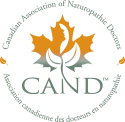|
So you don’t like taking vitamins for general health?
Well you don’t have to! All the vitamins and minerals our bodies need can be found in the foods all around us, the only secret is that we have to eat them!! In fact, when they come from a food source they are even better absorbed than any other way (as long as our digestive tracks are working properly)! If I were to try to make a list of all the best nutrient dense foods it would be endless because REAL food is REALLY good for us! So I have tried to condense it to the foods that contain some of the most essential nutrients we need and are often low on. First, here are some simple ways to ensure we are getting what we need:
Below I have listed some Bonus Foods to help us get the most bang for our buck with the foods we eat. Just remember that too much of a good thing is not necessarily better, so like everything, enjoy in moderation! Avocado: Omegas, potassium, Vitamins B3, Vitamin B5, Vitamin B6, phytonutrients, Vitamin E, Vitamin C, copper, Vitamin K Bee Pollen: B vitamins, all 9 essential amino acids, lipids, polyphenols, flavonoids, leukotrienes, catechins, phenolic acids, carotenoid pigments, phytosterols, enzymes, coenzymes, Vitamin E, Vitamin D, Vitamin C, inositol, rutin, potassium, calcium, magnesium, selenium, zinc, manganese, iron, copper Blackstrap Molasses: Magnesium, potassium, manganese, iron, calcium, copper, selenium, choline, Vitamin B6, Vitamin B5, Vitamin B3, Vitamin B1 Dulse, Kelp and other Sea Vegetables (from unpolluted areas): Iodine, Vitamin B6, iron, potassium, sodium, protein, calcium, magnesium, Vitamin A, Vitamin C Gelatin (grass-fed beef) or Bone broth: excellent source of collagen Goji Berries: Vitamin A, selenium, copper, iron, Vitamin C, Vitamin B1, Vitamin B2, calcium, protein, antioxidants Hemp Seeds: Protein, EFAs including omega 3, Vitamin E, phosphorus, potassium, magnesium, sulfur, calcium, iron, zinc Nutritional Yeast: Protein, B vitamins (we’re talking 1 TBSP has 240% your daily value of Vitamin B6), zinc, magnesium, iron, copper, manganese Red Cabbage: glucosinolates, polyphenols, glutamine, Vitamin K, Vitamin C, Vitamin B6, manganese, potassium, Vitamin B1, Vitamin B9, copper Sardines: Protein, Vitamin B12, selenium, phosphorus, omega 3, Vitamin D, calcium, Vitamin B3, iodine, copper, choline, Vitamin B2 Sprouts: these have a high nutrient composition that varies depending on the sprout Watercress, Kale: Vitamin K, Vitamin C, Vitamin A, calcium, B vitamins, iron, copper, manganese, potassium, magnesium, omega 3 . . . . . . . . . Essential Fatty Acid sources: Salmon, sardines, walnuts, flax seed, chia seed, kale, brussel sprouts, mustard seeds, cauliflower Probiotic sources: fermented foods, yogurt, kefir, kombucha, miso, sauerkraut, tempeh Prebiotic sources: Jerusalem artichokes, chicory root, apple cider vinegar (mother), onions, garlic, cabbage, leeks, jicama root, dandelion root, apples, oats, psyllium, legumes https://healthfeelsgood.wordpress.com/2016/09/07/so-you-dont-like-taking-vitamins/
0 Comments
Your comment will be posted after it is approved.
Leave a Reply. |

 RSS Feed
RSS Feed



